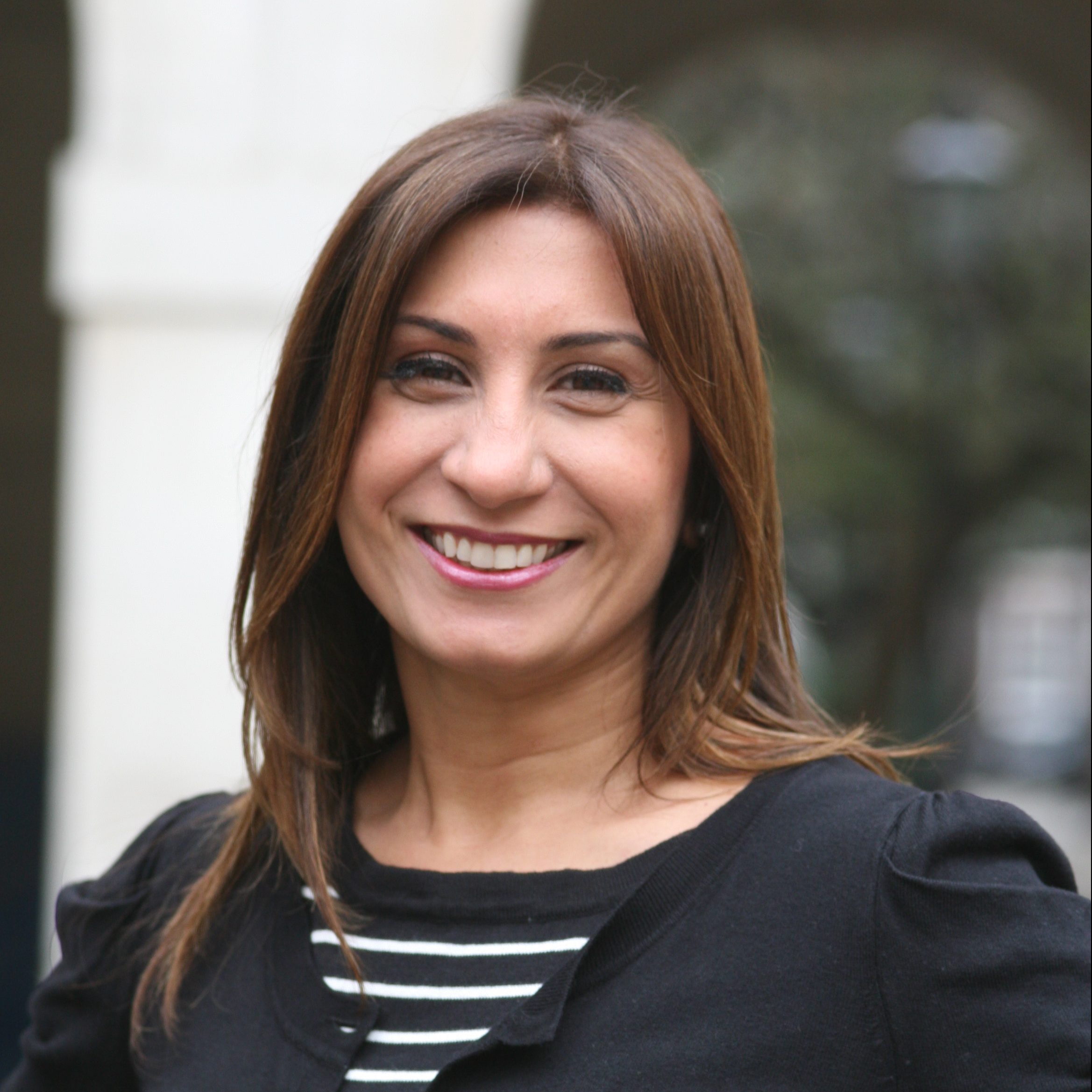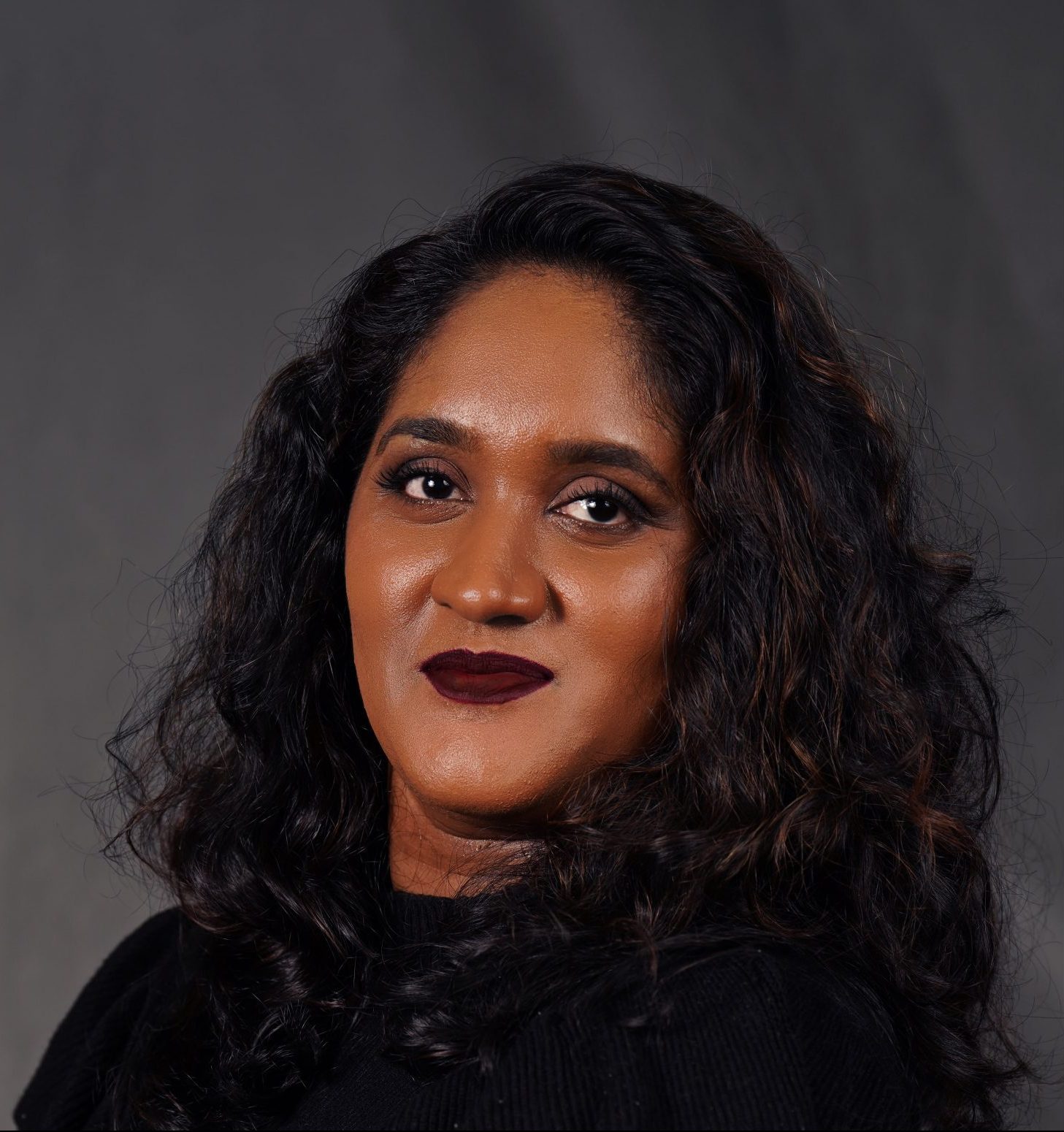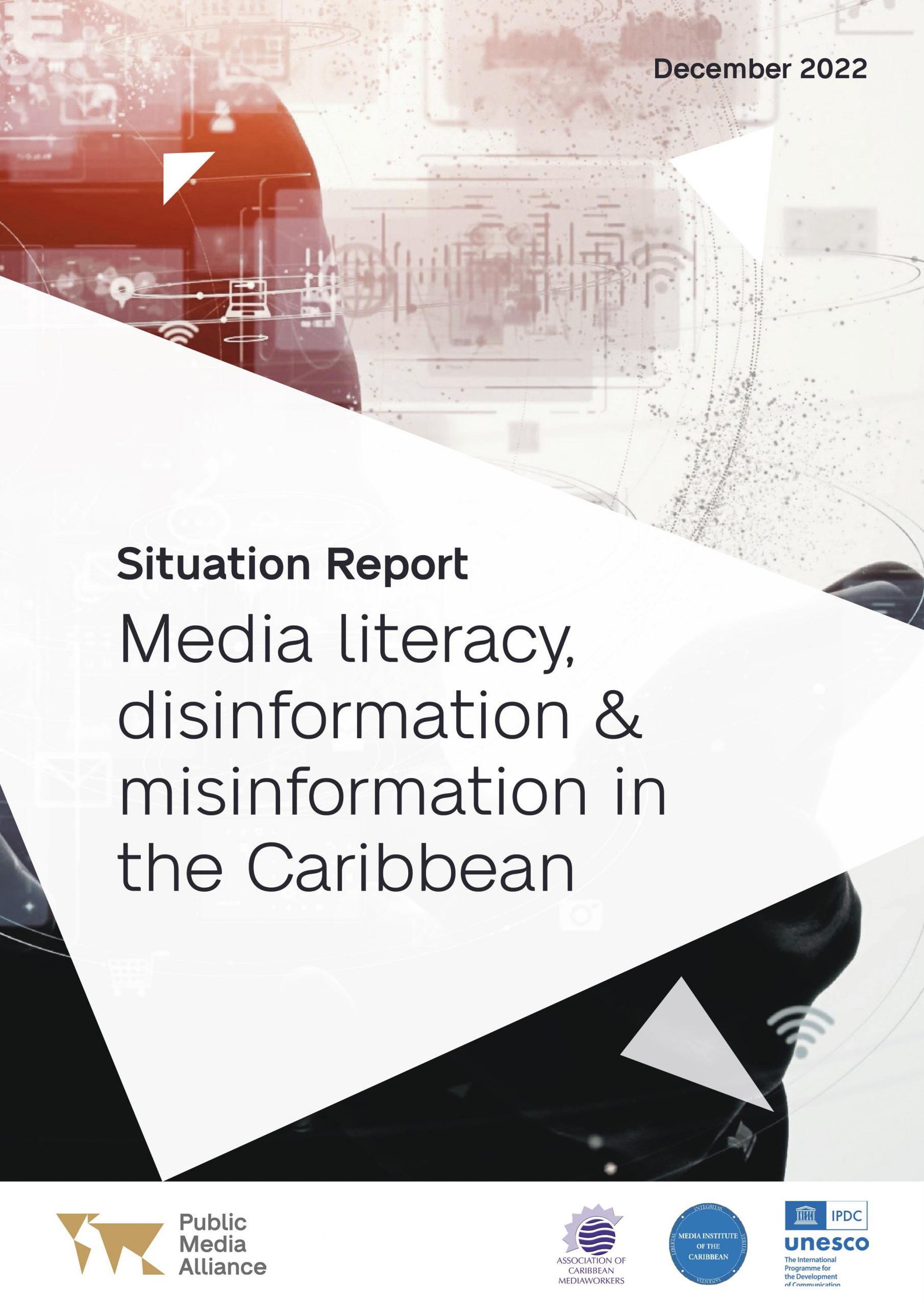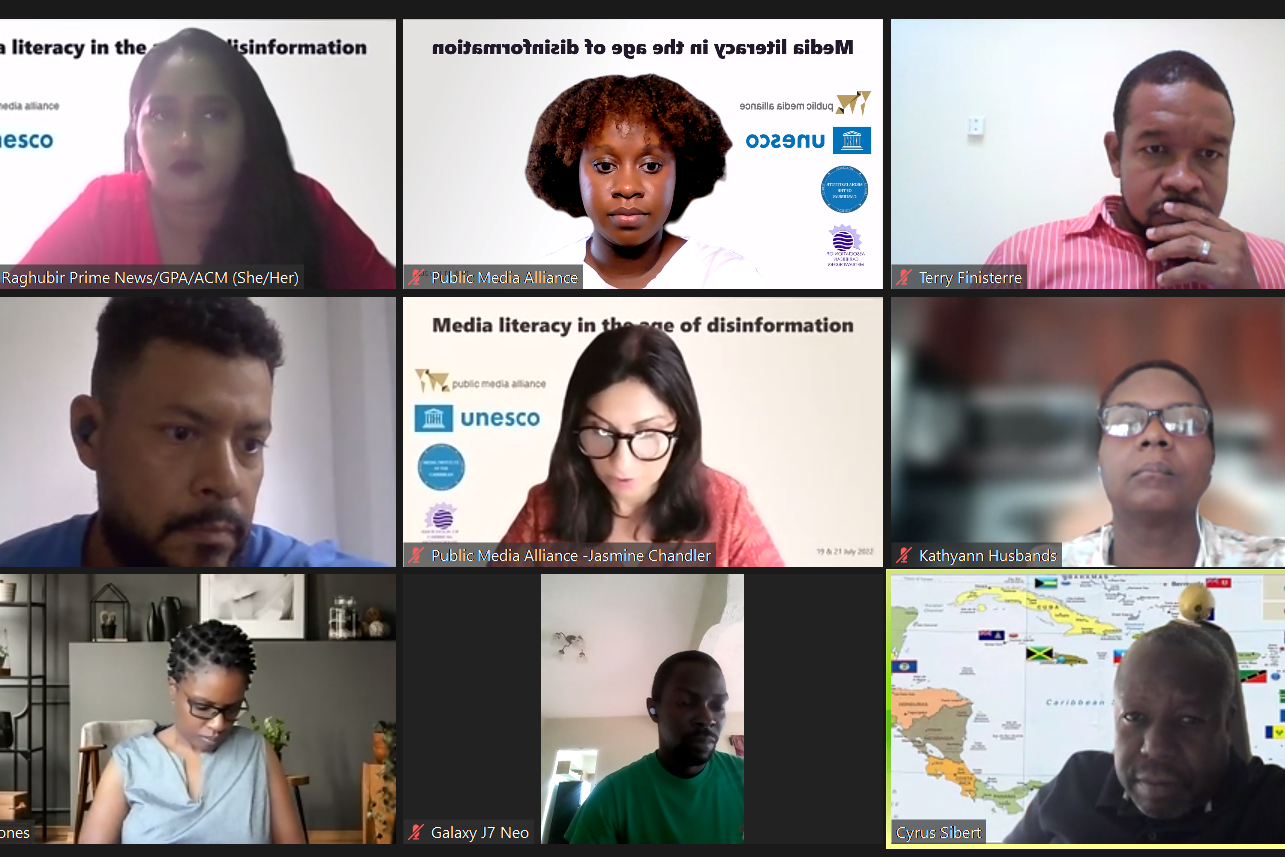Situation Report on Media and Information Literacy and Disinformation in the Caribbean Published
12th December 2022
Greater media literacy needed to counter mis- and disinformation across the Caribbean, shows new Situation Report from PMA and partners.
A new Situation Report from the Public Media Alliance and partners in the Caribbean has called for a programme of media and information literacy across all levels of the school curriculum, to counter the threat of mis- and disinformation.
The “Situation Report on Media Literacy, Disinformation & Misinformation in the Caribbean”, produced in partnership with the Association of Caribbean Media Workers (ACM), the Media Institute of the Caribbean (MIC), and UNESCO IPDC, was published today.
It covers eight Caribbean nations – the Bahamas, Barbados, Grenada, Guyana, Jamaica, St. Vincent & the Grenadines, Suriname, and Trinidad & Tobago – and examines each country’s relationship with media and information literacy, disinformation, and trust in news. In each country, research was undertaken over a period of five months. Separately, research was conducted by ACM to determine the feasibility of a regional trusted news network.
Key findings from the report:
- Unique challenges: No two country was exactly the same and the report highlights the unique challenges of each researched country, as well as the similarities across borders.
- The need for more regional research: Notably, the situation report emphasises that more analysis is needed across the region to tackle disinformation, media literacy, and trust in news media.
- Barriers remain: Barriers remain to achieving media literacy, particularly legislatively. Newsrooms are strapped for resources in an economically difficult environment (further exacerbated by the repercussions of the pandemic) and are working in highly competitive landscapes with pressure to report news before competitors.
- Opportunities abound: Importantly, the report also demonstrates achievable opportunities for regional media organisations and governments.
Key recommendations from the research report:
- Nearly every researcher recommended a more widespread and systemic media and information literacy awareness programme with the integration of media and information literacy into school curriculums, across all levels.
- Across the issues of disinformation, media literacy, and trust in news, the need for collaboration was explicitly recommended by researchers.
- With low barriers to entry into the media profession, regulating formal media organisations was put forward by several researchers as a way to curb the impact of irresponsible journalism, lower disinformation and promote media literacy, and build trust in news.
The situation report forms part of a wider project, “Developing a Situation Report & Action Plan on Media and Information Literacy and Disinformation in the Caribbean”, to improve the capacity of media workers to promote media literacy and thwart disinformation. It follows a series of events and the launch of a Caribbean eight-point action plan on disinformation.
Speaking on the research, Kiran Maharaj – the researcher for Trinidad & Tobago and one of the project facilitators – highlighted some of the challenges that come with studying disinformation in the Caribbean. She noted a lack of data and documented case studies, as well as the culture of secrecy among some interviewees. She also said there was a need for an information ecosystem assessment to better understand the motivators and distribution models of disinformation in the region. Overall, she said, it seemed that more research was needed to fully understand the impact of disinformation in the Caribbean and to develop effective solutions for mitigating its effects.
Meanwhile, the other project facilitator, Nazima Raghubir – who also conducted the research for Guyana – said the project had brought attention to the challenges that misinformation and disinformation pose to Caribbean media. The project also provided insights into potential solutions, such as supporting trusted news sources, providing access to reliable data and sources, and training media professionals, she said, while emphasising the importance of media literacy and education to combat these challenges.

“This situation report is a timely reminder that concerted efforts are needed to build populations supported by strong media literacy skills, particularly in regions such as the Caribbean where accurate, eye-opening research on the impact of growing disinformation remains scarce to non-existent.”
– Jasmine Chandler, Projects & Membership Manager of PMA
“The need for media literacy was evident at all levels of society. Coupled with how traditional media is used, there is a necessity for effective awareness campaigns with regards to media literacy and information. The project confirmed some hypothesis made by the researchers before the field work began and new findings were also added.”
– Kiran Maharaj, President of MIC


“Misinformation and disinformation continue to challenge the way Caribbean media gathered and disseminated news. As we still face a global pandemic, toil with elections coverage, and highlight everyday issues, these two would prove to be among the major challenges newsroom and individual media professionals face. This has been compounded by a lack of trusted sources, lack of timely information, data professionals can rely on and the misuse of social media.”
– Nazima Raghubir, President of ACM
This research report is part of a wider project implemented by the PMA and our regional partners, MIC and ACM. It is supported by the UNESCO Cluster Office for the Caribbean and UNESCO’s International Programme for the Development of Communication (IPDC). Read more about the project here.

Related Posts
2nd November 2022
Caribbean media and information literacy and disinformation action plan launched
PMA's Caribbean media and information…
26th July 2022
Caribbean disinformation workshop sees successful conclusion
Our two-day virtual disinformation and…
13th May 2022
New Project: Thwarting disinformation in the Caribbean
Our next project — set to improve the…


